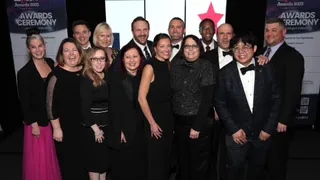
Duncan_Andison / iStockphoto.com
3 April 2017Americas
AbbVie fights to invalidate Novartis patents
AbbVie has filed a declaratory judgment against Novartis, alleging that its patents covering the treatment of hepatitis C virus (HCV) are invalid.
Already registered?
Login to your account
If you don't have a login or your access has expired, you will need to purchase a subscription to gain access to this article, including all our online content.
For more information on individual annual subscriptions for full paid access and corporate subscription options please contact us.
To request a FREE 2-week trial subscription, please signup.
NOTE - this can take up to 48hrs to be approved.
For multi-user price options, or to check if your company has an existing subscription that we can add you to for FREE, please email Adrian Tapping at atapping@newtonmedia.co.uk
Americas
4 January 2022 Novartis Pharmaceuticals has prevailed against China’s HEC Pharm at the US Court of Appeals for the Federal Circuit, after a majority panel of judges held that a patent covering the multiple sclerosis drug Gilenya was valid.
Americas
15 July 2021 Novartis should pay a Daiichi Sankyo subsidiary, Plexxikon, $47 million in overdue IP royalties, according to an argument presented before a federal court in California this week.
Big Pharma
18 August 2020 In a win for Novartis Pharmaceuticals, the US District Court for the district of Delaware has upheld the patent on its top-selling multiple sclerosis drug Gilenya.
Editor's picks
Editor's picks
Americas
4 January 2022 Novartis Pharmaceuticals has prevailed against China’s HEC Pharm at the US Court of Appeals for the Federal Circuit, after a majority panel of judges held that a patent covering the multiple sclerosis drug Gilenya was valid.
Americas
15 July 2021 Novartis should pay a Daiichi Sankyo subsidiary, Plexxikon, $47 million in overdue IP royalties, according to an argument presented before a federal court in California this week.
Big Pharma
18 August 2020 In a win for Novartis Pharmaceuticals, the US District Court for the district of Delaware has upheld the patent on its top-selling multiple sclerosis drug Gilenya.
Americas
4 January 2022 Novartis Pharmaceuticals has prevailed against China’s HEC Pharm at the US Court of Appeals for the Federal Circuit, after a majority panel of judges held that a patent covering the multiple sclerosis drug Gilenya was valid.
Americas
15 July 2021 Novartis should pay a Daiichi Sankyo subsidiary, Plexxikon, $47 million in overdue IP royalties, according to an argument presented before a federal court in California this week.
Big Pharma
18 August 2020 In a win for Novartis Pharmaceuticals, the US District Court for the district of Delaware has upheld the patent on its top-selling multiple sclerosis drug Gilenya.

